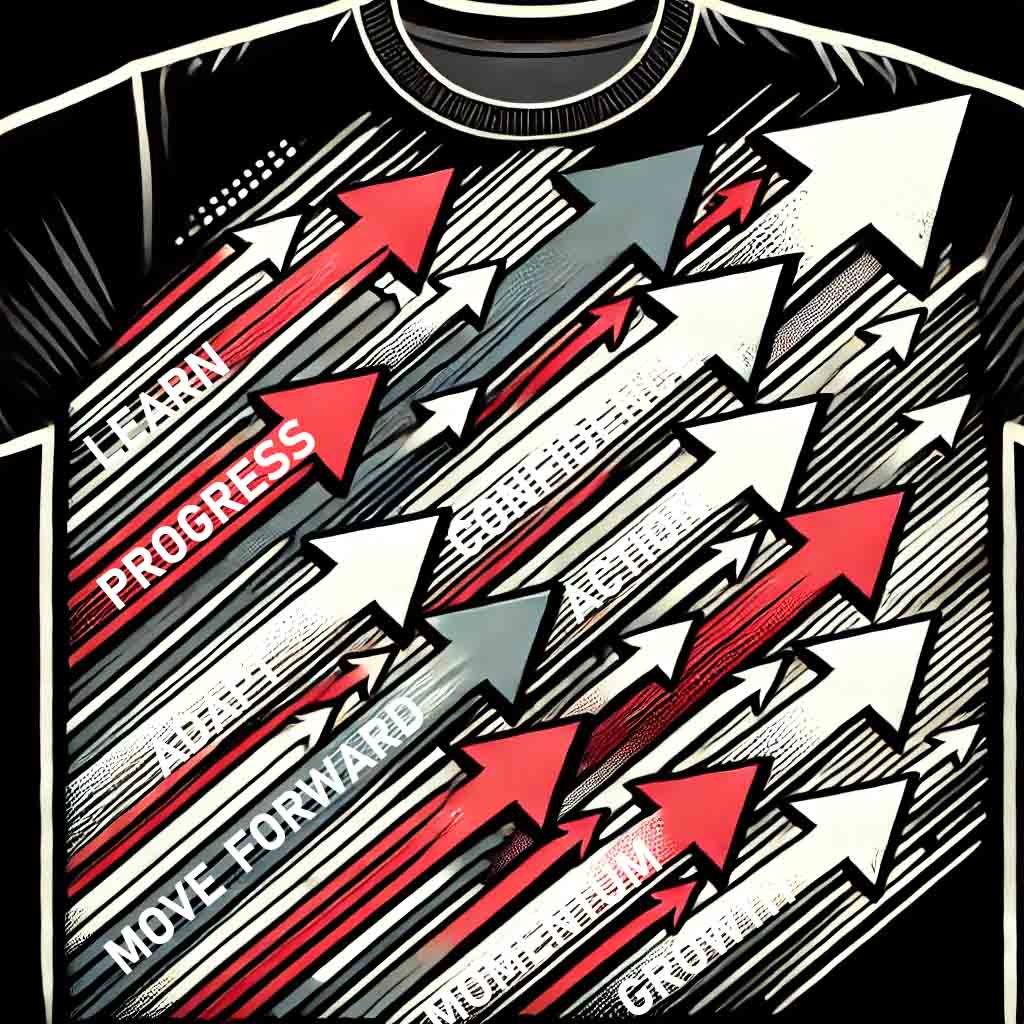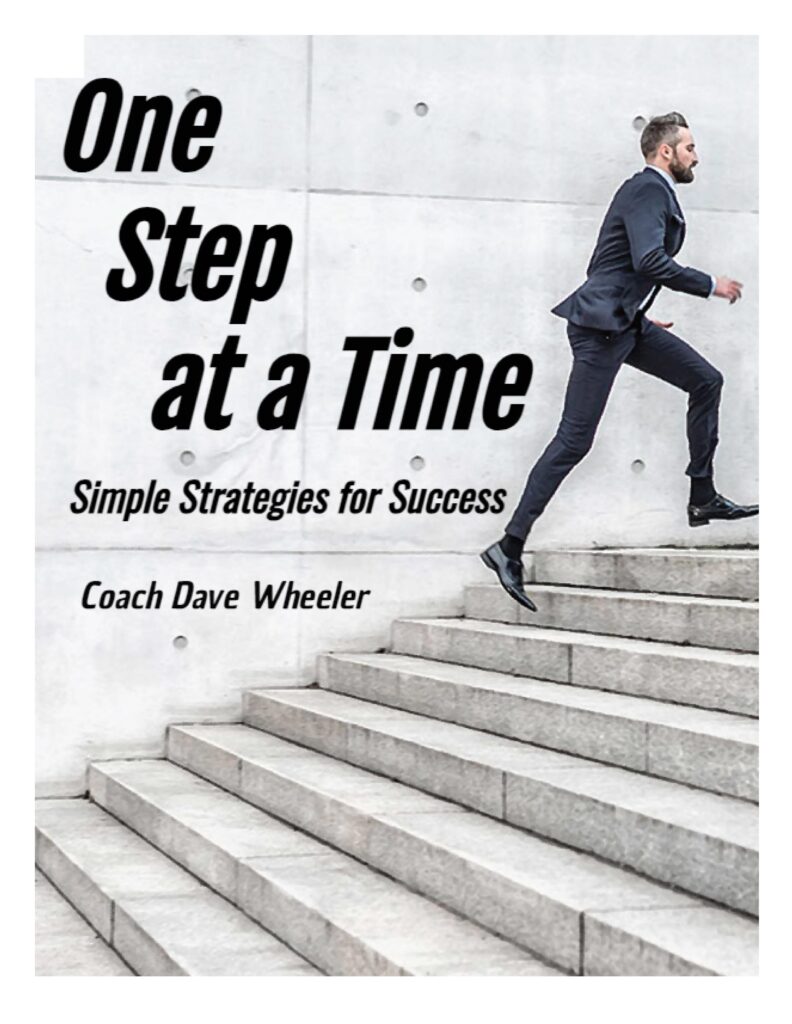By Coach Wheeler

As a basketball coach, there’s one phrase that has always struck a nerve with me: “I can’t.”
I remember vividly the countless times I introduced a new skill or drill to a player, only to hear those dreaded words: “I can’t do it, Coach.” It felt like they were giving up before even trying, as if they had already decided failure was the only option. But over the years, I’ve come to realize something powerful: Success often lies just beyond that “I can’t.” If we can help ourselves—or others—push past that moment of doubt, there’s a whole world of growth and achievement waiting.
Let’s explore why we get stuck at “I can’t,” how to overcome it, and how to use that turning point to find success in every aspect of life.
Why “I Can’t” Feels So Real
When we say “I can’t,” it’s usually not about a true lack of ability. More often, it’s about fear, doubt, or a lack of vision.
- Fear of Failure: Nobody likes to fail, especially in front of others. Saying “I can’t” is a protective mechanism. It’s easier to claim defeat upfront than to risk falling short after giving it a try.
- Self-Doubt: Many people underestimate their own potential. They assume that because they haven’t done something before, they’ll never be able to.
- Lack of Vision: Sometimes, people simply can’t see themselves succeeding. They can’t picture the steps or the outcome, so they shut down the idea entirely.
This is why “I can’t” often sounds like “I won’t.” It’s not that they lack the physical ability—it’s that their mindset has created a mental block.
The “Can’t Point”

I call it the “Can’t Point”: That moment when someone bumps into the edge of their comfort zone.
For a basketball player, it might be the first time they attempt a spin move or shoot a three-pointer under pressure. For someone in life, it could be learning a new skill, speaking in front of a crowd, or starting a new venture.
The “Can’t Point” is where most people stop … where they let Self Doubt keep them from moving forward.
But here’s the truth: this is where the magic happens. The “Can’t Point” is not a wall; it’s a threshold. Beyond it lies growth, success, and achievement. The challenge is getting past it.
The Role of Confidence
One of my biggest jobs as a coach is to help players see their own potential—even when they can’t see it themselves. When a player says, “I can’t,” my response is usually something like this:
“Yes, you can. I’ve seen you do tougher things before. Let’s break it down step by step. I know you’ve got this.”
It’s amazing how much of a difference confidence—whether it comes from within or from someone else—can make. A player might go from refusing to try to giving their best effort simply because I expressed my belief in them.
Here’s the takeaway for you: if you don’t believe in yourself, borrow belief from someone who does. Surround yourself with coaches, mentors, or friends who see your potential. Their confidence can bridge the gap until you develop your own.
5 Steps to Move Beyond “I Can’t”
So how do you move beyond the “Can’t Point”? It’s not always easy, but it’s always worth it.
1. Break It Down
Big challenges feel overwhelming because we see them as a single, massive task. Break it into smaller, manageable pieces. For example, when teaching a player to execute a spin move, I don’t just say, “Spin and score.” I break it down into footwork, hand placement, and timing.
Do the same in your own life. Want to run a marathon but feel like “I can’t”? Start with a single mile… a single walk down to the corner and back. Want to master public speaking? Begin by talking in front of a small group.
Like I say in my book, “One Step At A Time”, every great accomplishment is the result of a load of small steps, each one easy to accomplish if you just take action in the direction of your dreams.
2. Reframe the Challenge
Instead of focusing on what you can’t do, focus on what you can learn. Think of it this way… Every “I can’t” is an opportunity to either succeed or to grow. Keep trying until “you can”.
Another way to reframe the challenge is to change your mindset from “I can’t” to “I haven’t done it yet.” That small shift in language, adding the word “yet” can make a huge difference. It WILL happen. It just hasn’t happened YET.
3. Visualize Success

A lack of vision is a common reason people get stuck at “I can’t.” Maybe you “can’t” see how you could accomplish it (yet). If someone was wearing a blindfold would you say they “can’t” see? Or is there just something in the way of them seeing what needs to be done?
Take a moment to close your eyes and imagine yourself succeeding. Picture what it will look and feel like when you’ve accomplished the task. Visualization primes your brain for action and makes success feel more attainable.
4. Embrace the Struggle
Here’s the truth: it’s supposed to be hard.
Growth happens when we struggle and push through our current limites and overcome challenges. Instead of avoiding discomfort, accept it as part of the process of growing and lean into it.
Remind yourself that every time you overcome a “Can’t Point,” you’re getting stronger and more capable.
5. Take Imperfect Action
You don’t have to get it right on the first try. Most people don’t.
The key is to take action anyway. As I often tell my players, “You miss 100% of the shots you don’t take.” Success is built on a foundation of attempts, failures, and adjustments.
Don’t let yourself get stuck at your “Can’t Point”.
Take Action. Any action is better than being stuck. If the results of your action turn out to be a “less than desirable outcome”, learn from it (#2-Reframe the Challenge) and try again!
A Real-Life Example… “I can’t make foul shots”
Let me share a story from my basketball coaching exploits. There was a young player I was coaching who struggled with free throws. Every time they stepped to the line in practice, they’d miss a few and mutter, “I can’t shoot free throws, Coach.”

One day, I pulled them aside and said, “What if I told you that you’re one small adjustment away from becoming the best free-throw shooter on the team? Let’s figure it out together.”
We spent extra time working on form, routine, and mindset. We settled on a simple routine for every shot. If you can make one free throw, you simply need to repeat that routine every time and you should never miss. The basket is not moving. You are standing in the same spot every time. Plus, the “free” part of free throw means that there is no one guarding you. There is no reason to ever miss a free throw, especially after you have practiced it … and practiced it … and practiced it… until it is the same every time!
I encouraged them to focus on progress, not perfection. Slowly but surely, they improved. By the end of the season, they were sinking free throws under pressure and grinning at the line.
What changed? They stopped saying “I can’t” and started saying “I’ll try.” That small shift unlocked their potential and gave them a chance to succeed every time they went to the foul line.
How You Can Use This
You don’t have to be a basketball player to apply these principles. The next time you catch yourself saying “I can’t,” pause and ask yourself a few questions:
- Is it really true?
- What’s one small step I can take right now?
- Who can I ask for support or guidance?
Most importantly, remind yourself that “I can’t” is just a feeling, not a fact.
Success Lies Just Beyond

The phrase “I can’t” might feel like a stopping point, but in reality, it’s a starting line. Success doesn’t come from avoiding challenges; it comes from facing them head-on and refusing to quit.
As a coach, I’ve seen players go from “I can’t” to “I did it” more times than I can count. Each time, it’s a reminder of what’s possible when we push past our doubts and embrace our potential.
Remember: The moment you say “I can’t” is the moment you’re standing at the edge of greatness. Take one more step. Try one more time. That’s where success is waiting.
So, the next time you hear yourself—or someone else—say “I can’t,” smile and think: “I’m just getting started.”
Go out there and claim your success. It’s closer than you think.


